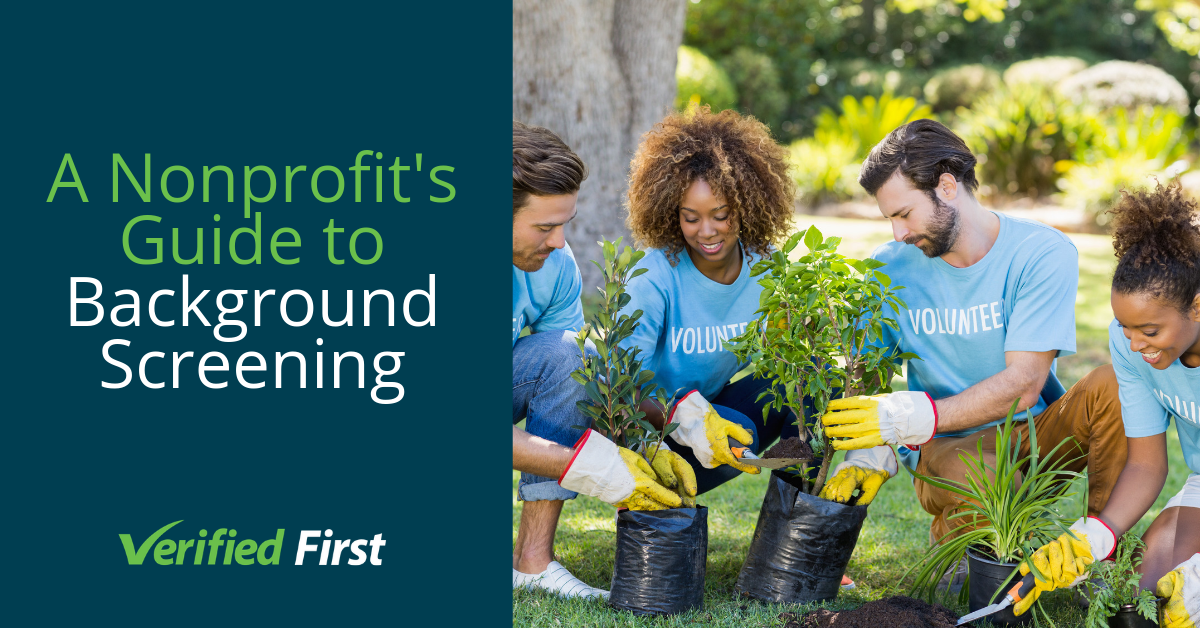
When you think about nonprofit volunteers, what comes to mind? You’re probably picturing honest, kind, and selfless people who truly love helping others. You know, the kind of people you can count on to come through for you. The kind of people you can trust.
For nonprofits with little extra time and money, conducting background checks on these kinds of people would be a waste of precious organizational resources, right?
Wrong!
It’s tempting to assume that your volunteers are all standup citizens who just want to make a difference in their communities. And quite honestly, this is probably true most of the time. That said, background checks are a very important part of making sure that’s actually the case.
Why should you do background checks? For lots of reasons! Key areas of concern include:
Proactive background checks can help reduce the risk of something going awry by weeding out potential dangers before they become a problem.
Let’s start with who is the typical volunteer. According to the most recent survey released by the US Bureau of Labor Statistics (USBLS), volunteers tend to be married, white, female, between 35-44 years old, with higher education levels and children under 18.
Many nonprofits rely on volunteers to keep their organizations running. No volunteers means no programs, no life-changing services, and no helping those who need it most. In some cases, it can also mean no funding. After all, if you aren’t able to carry out your mission, no one is going to be inspired to give you money.
Unfortunately, not all volunteers are the right volunteers. Depending on the populations you work with and the things you need done, the volunteer pool available to you will change. Some volunteer opportunities can cast a wide net. Things like work parties, event help, and phone banking are accessible to lots of different people. Other volunteer needs are much more specific and can require close one-on-one contact, confidentiality issues, and working with sensitive populations like children and the elderly. The most common volunteer activity involves collecting and distributing food (USBLS survey).
Great volunteers can help you accomplish your goals and make your community a better place. The wrong volunteers can do a lot of damage— causing harm to your clients, your staff, your reputation, and your organization as a whole.
The right volunteers are those who believe in your mission and want to be part of it. They’re willing to donate their time - and the median amount of time per year spent volunteering was 52 hours either with one or two organizations (USBLS survey). They’re also willing to follow protocol and participate in any necessary background checks as part of the process.
What kinds of things should you be looking for with a background check? That depends on the volunteer roles you are trying to fill. Will your volunteers be working with money? Are they interacting with children? Is driving a requirement?
Common screening options include the following:
Not every volunteer will need every screening, yet every volunteer should be screened. To be most efficient with your time and resources, you’ll want to consider what makes the most sense for each position or role you need to fill. The next step is to do your research and choose a verification service that can deliver what you need, when and how you need it.
Once you’ve made those determinations, commit to being consistent. That one time you decide to skip the background check could be that one time that gets you in trouble. This would also include rescreening volunteers annually, especially those who return to volunteer months later.
The right background checks aren’t the cheapest background checks, the one-size-fits-all background checks, or the randomly applied background checks. The right background checks provide a thorough evaluation to help you find the right volunteers to help you achieve your goals. That way, your nonprofit can get back to doing what it does best: making a difference.
Ready to cut your organization's background screening processing time by 67%? Learn how the nonprofit Oregon Museum of Science & Industry did it with Verified First!